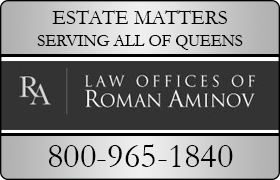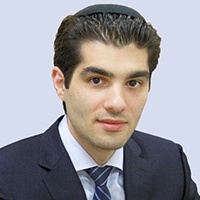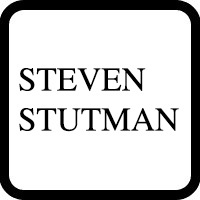Woodbury Wills & Probate Lawyer, New York
Sponsored Law Firm
-
 x
x

Click For More Info:
-
The Law Offices of Roman Aminov
147-17 Union Turnpike Flushing, NY 11367 » view mapElder Law, Probate, Estate Planning Free Inital Phone Consultation
The Law Offices of Roman Aminov is a client centric trusts and estates practice concentrating in estate planning, elder law, and probate.
800-965-1840  Roman Aminov
Flushing, NY
Roman Aminov
Flushing, NY Attorney At Law - New York, 2011
 Testimonials
Testimonials"Roman went out his way to help me. He made several attempts to contact me."
 Contact UsEmail or Call 24/7
Contact UsEmail or Call 24/7Call for free initial consultation,
800-965-1840.
Includes: Estate Administration, Living Wills, Wills
Steven William Stutman
✓ VERIFIEDReal Estate, Consumer Bankruptcy, Wills & Probate, Bankruptcy
Steven Stutman is a practicing lawyer in the state of New York handling Real Estate and Estate matters.
Alissa Joy Wool
Family Law, Wills & Probate, Transportation & Shipping, Corporate
Status: In Good Standing
N. Richard Wool
Family Law, Wills & Probate, Transportation & Shipping, Corporate
Status: In Good Standing
Alexander G. Vodovozov
Lawsuit & Dispute, Trademark, Intellectual Property, Wills & Probate
Status: In Good Standing Licensed: 24 Years
Alice Jakyung Choi
Federal Appellate Practice, Wills & Probate, Trusts, Estate Planning
Status: In Good Standing
Andrew Gerard Cox
Commercial Real Estate, Wills, Family Law, DUI-DWI
Status: In Good Standing Licensed: 32 Years
Anthony Broscritto
Divorce & Family Law, Wills & Probate, Power of Attorney, Living Wills, Health Care Other
Status: In Good Standing Licensed: 38 Years
Assad Ali Bhatti
Estate, Wills & Probate, Traffic, Criminal, Business
Status: In Good Standing Licensed: 18 Years


 Testimonials
Testimonials Contact UsEmail or Call 24/7
Contact UsEmail or Call 24/7

